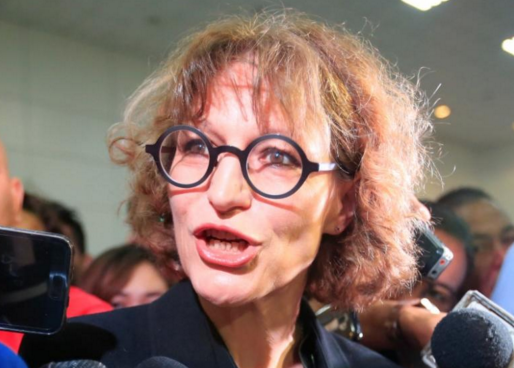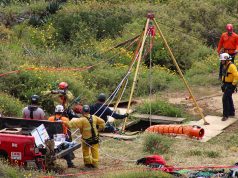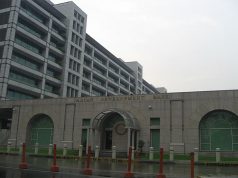MANILA, Philippines – It’s not true that Agnes Callamard rejected the invitation of the Philippine government to officially visit the country. It was President Rodrigo Duterte himself who allegedly made it harder for the UN special rapporteur on extrajudicial killings to make an official trip by imposing conditions on her visit for a planned fact-finding mission on the spate of killings in the country.
This is Callamard’s view and while in Manila on Saturday for a personal visit, the UN rapporteur reiterated her appeal to Duterte to remove the conditions he had imposed.
“I’m committed to continue my dialogue with the government. And I am committed to undertake an official visit either by myself or with the special rapporteur on the right to health,” Agnes Callamard told reporters on Saturday.
“I’m just waiting for the government to lift the three conditions that had been imposed on my visit,” she added.
Invitation with conditions
The Office of the President sent a letter to Callamard on September 26 last year inviting her to visit the Philippines and meet government officials “to get our perspective on the drug menace confronting our country and the efforts of law enforcement and others to address that challenge within the means allowed by Philippine law.”
The government asked Callamard to visit the country following Duterte’s invitation to UN and European officials to come to the Philippines and conduct investigations into the alleged worsening human rights violations amid the administration’s war on drugs campaign.
The invitation to Callamard, however, had conditions. In December last year, Philippine officials said Callamard was welcome to visit as long as she complies with Duterte’s conditions.These included a public debate with the President; that Duterte would be able to ask her questions about her investigation; and, that she take an oath before answering questions from Filipino officials.
Callamard rejected the conditions, saying they could breach established protocol of the Human Rights Council.
Callamard late last year said she was committed to visit the country this year to conduct a fact-finding mission on the spate of killings allegedly linked to the war on drugs, “in full accordance with the Terms of Reference for Fact-Finding Missions by Special Rapporteurs.”
She asked for free, confidential and unsupervised interviews with the victims, their families, legal representatives, detainees and civil society groups, and unrestricted access to all regions and places of detention and facilities.
She said she would hold a press conference to present her initial observations.
When asked on Saturday to comment on being bashed, Callamard said she was already used to receiving flak. Nevertheless, she urged everyone to focus instead on what experts had to say during the drug policy forum organized by the Free Legal Assistance Group (FLAG).
“I’m used to it. It’s a pity because the purpose of the forum is to open avenues of dialogue…And that should be the real focus, not me. The real focus is what are the lessons to be learned from the rest of the world, what can the Philippine government, the Philippine stakeholders take on those experiences in order to build an effective response to the drug abuse in the country,” she said.
FLAG’s drug policy forum had brought together foreign experts to talk about different approaches to curb the illegal drug problem and to share how other countries fared with their own war on drugs.
Taking in the lessons from the forum, Callamard said there were alternative approaches that the government could adopt than the current drug policies in place.
“I have been repeatedly told that you don’t have alternatives. Of course we have alternatives,” she said.
“There are alternatives based on holistic approach, on balanced approach which involves the health, which involves justice, which involves policing,” she added.
Callamard earlier said the strategies similar to the one carried out by the Philippines in dealing with the illegal drugs only fostered a “regime of impunity.”
Hope in DDB plan
Despite her previous statements on the government’s war on drugs, Callamard expressed hope in the proposed document that Dangerous Drugs Board chairman Benjamin Reyes had discussed on Friday during the forum.
“I have to say the strategy presentation yesterday from the chair of the narcotics bureau did give me hope because it’s a balanced strategy,” she said.
Reyes said Friday during the forum that DDB is currently drafting a new document that would harmonize the strategies of different government agencies in combating the illegal drug problem.
He said the new anti-illegal strategy plan would also expand the provision of services by the government and would clearly define the role of government agencies in the drug campaign. He stressed that their proposed strategy plan would also consider drug addiction as both a health issue and as one of peace and order.
The working title of the document, according to Reyes, is the Philippine Anti-illegal Drugs Strategy or PADS.
Callamard also urged the Philippine government to support DDB’s proposed document.
“I think the plan for the future that he wants to discuss with the government is a plan that is really based on what the lessons from the around the world, which is to have an integrated and holistic approach which places a lot of emphasis on health, a lot of emphasis on the justice sector, a lot of emphasis on preventive measures.” she said
“I will certainly invite the government to listen carefully to what the narcotic bureau chair has to say along with what civil society has to say,” she added.










